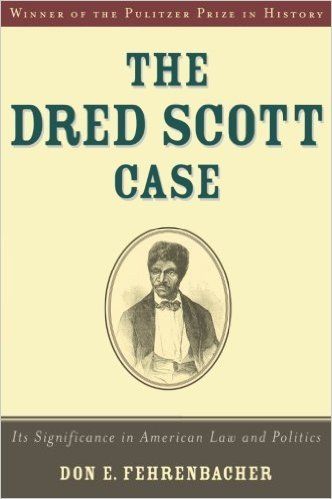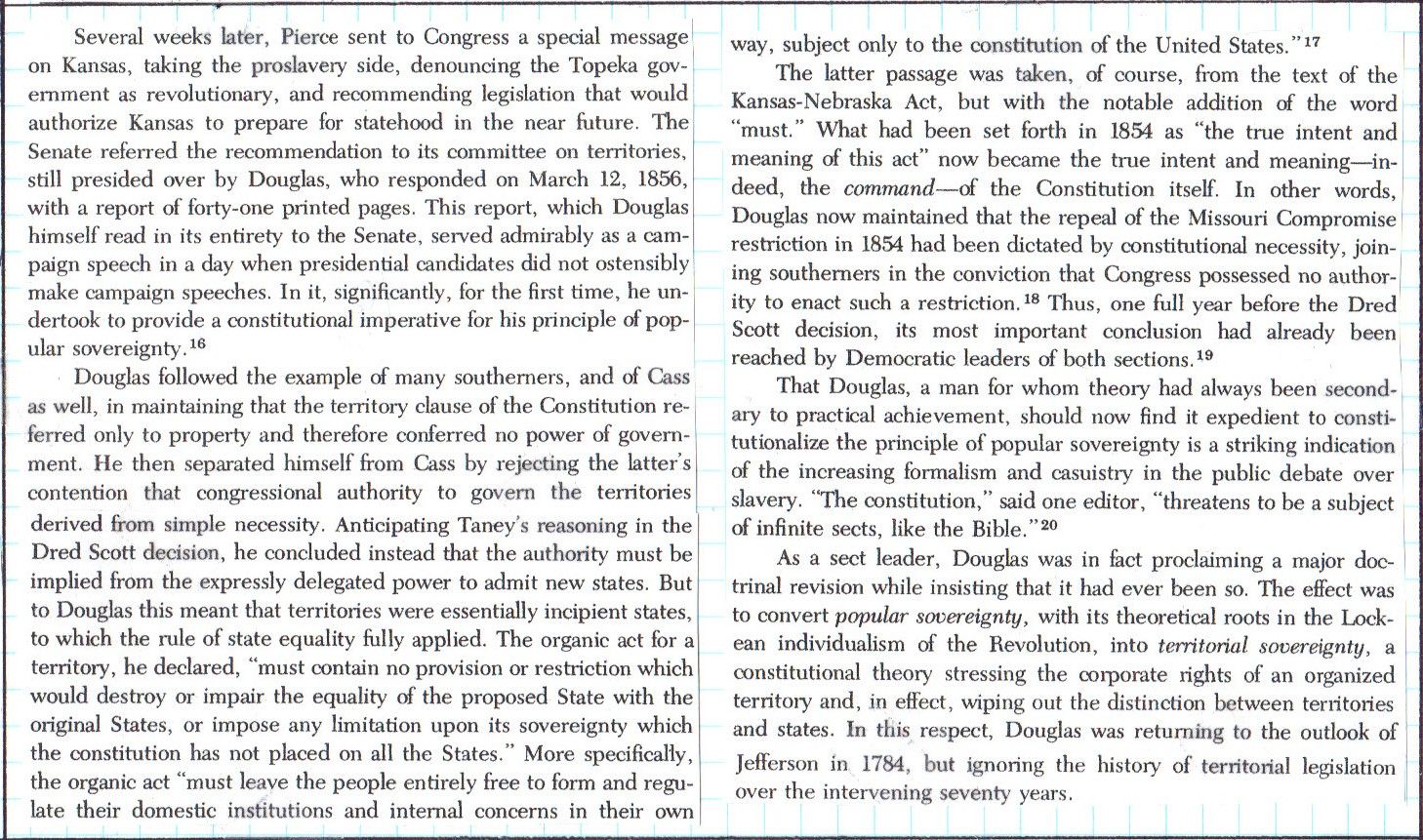
Continued from February 1856 (reply #11, first excerpt)

Don E. Fehrenbacher, "The Dred Scott Case: Its Significance in American Law and Politics" (1978)

Continued from February 1856 (reply #11, first excerpt)

Don E. Fehrenbacher, "The Dred Scott Case: Its Significance in American Law and Politics" (1978)
However, competing with the concept of "judicial review" were also the doctrines of "departmentalism," that each branch of government, in its own sphere, had the authority to determine the constitutionality of its acts. Also, as the author notes, the idea of "popular sovereignty" was still pervasive; the idea that the people themselves could determine, through the ballot box, whether an act was constitutional or not. Of course, for popular sovereignty to work, the people themselves have to know what's actually in the Constitution. Unfortunately, very few people today actually do, including a number here on this forum where you would expect a relatively high knowledge of the Constitution.
One of the many consequences of the Civil War, and the general evolution of American society, was that Courts were seen more and more as the repository of all Constitutional knowledge. From that came the concept of "judicial supremacy" in the late 1900s; the concept that Courts were the highest and final word on the meaning of the Constitution. Judicial supremacy was the necessary precursor to what we know today as "judicial activism," where the Court is not interpreting the laws made by the Congress or carried out by the Executive, they are making the law themselves. In so doing, they are necessarily creating and implementing policy decisions that underlie the laws they create, which is a role Courts were never, ever intended to play, of for which there are terribly ill-suited.